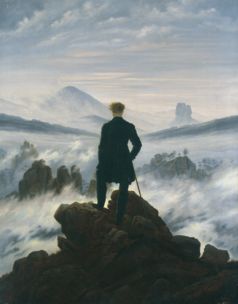
International Summer University
ISU 2011: Prussia - Philosophy, Rebellion and the State
July 7 - August 12, 2011

The International Summer University at the European College of Liberal Arts is an interdisciplinary programme in philosophy, art history and literature. In 2011, the theme of the University is the intellectual legacy of Prussia, the state of which Berlin was once the capital. It explores the classic works of German and European philosophy in relationship to the conditions in which they were written, including the art and architecture of Berlin and its former world.
'Prussia' was always as much an idea or myth as an historical place. Originating in the fusion of an electorate (Brandenburg) of the Holy Roman Empire with an easterly duchy, it grew to sudden prominence in the era of Enlightenment, through militarized planning and territorial conquest. The locus of strenuous educational efforts to mould individuals into servants of the state, it resisted the twin nineteenth-century forces of liberalism and nationalism-only to become the agent of the creation of 'Germany'. Prussia was finally dissolved as a legal entity at the end of the Second World War: it was regarded then (and since) as an origin for the cults of order and authority characterizing the Third Reich - a view anticipated by representations of the Prussian character in German modernism. In the landscape of contemporary Berlin, the Prussian heritage is an important component of public space, its bourgeois and aristocratic splendour preserving a nostalgic appeal, amid awareness of its compromised significance.
Combining historical investigation with the study of works by Kant, Kleist, Clausewitz, Hegel, Fichte, Hoffmann, Stirner, Fontane, Mann and Broch, the curriculum focuses on the problem of the relation between citizen and state, and the development and meaning of the idea of 'history'. It considers how literature registers the impact of these forms on the individual body, as well as the role of myths of Prussia in modernist attempts to diagnose the problems of the twentieth century. Based around a core programme of lectures and seminars, the ISU incorporates contributions on special topics by guest speakers, in addition to museum visits and excursions to sites of importance in Berlin and the former Prussia. (ECTS Credits: 8)
